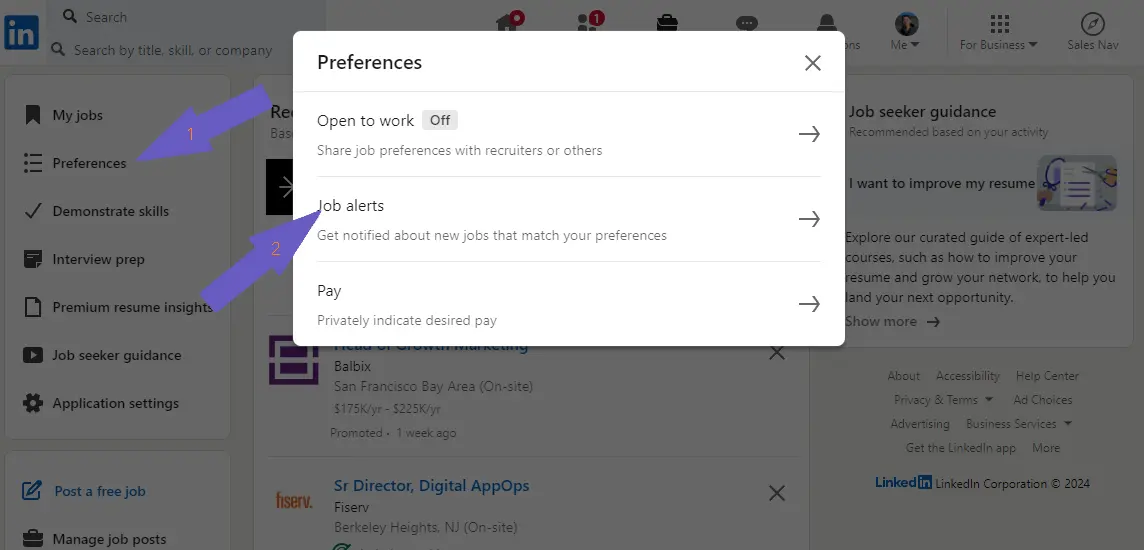Did you know that it costs 1.2-1.4 times a salesperson's salary to bring them on board? Hiring the right sales reps is crucial for your business's success, but it can be a daunting and expensive process.
In this comprehensive guide, we'll walk you through the essential steps to find, interview, and onboard top sales talent, including leveraging AI agents like Bardeen for repetitive tasks. By following our proven strategies, you'll build a high-performing sales team that drives revenue growth and takes your business to new heights. Let's dive in!
The Ideal Sales Rep Candidate Profile
To hire the best sales reps, it's crucial to define the ideal candidate profile. Look for these key traits:
1. Drive, Resilience, and Grit
Top sales reps have an inner drive to succeed. They're resilient in the face of rejection and have the grit to keep pushing forward. Look for candidates who have overcome challenges and persevered.
2. Excellent Communication Skills
Sales is all about effective communication. Ideal candidates are articulate, persuasive, and adapt their communication style to connect with different customers. Assess their ability to listen actively, ask insightful questions, and clearly convey value.
3. Coachability and Continuous Learning
The best sales reps are open to feedback, coachable, and committed to continuous improvement. They proactively seek learning opportunities to sharpen their skills. During interviews, ask about their approach to personal development and how they prepare for sales calls.
4. Culture and Value Alignment
Hiring sales reps who align with your company culture and values is essential for long-term success and retention. Define your core values and assess candidates' fit during the interview process. Ask behavior-based questions and look for examples that demonstrate shared principles.
When hiring for different levels of seniority, tailor your ideal candidate profile accordingly:
- Entry-level sales reps: Focus on raw talent, drive, and coachability. Prior sales experience may be less critical.
- Senior sales reps: Prioritize proven track record, industry expertise, and ability to mentor junior reps.
Defining your ideal sales rep candidate profile sets the foundation for an effective hiring process. In the next section, we'll explore how to craft a compelling job description to attract top talent and build a prospect list for your sales team.
Crafting a Compelling Sales Rep Job Description to Attract Top Talent
A well-written job description is crucial for attracting the right sales rep candidates. It should clearly outline the role, responsibilities, and qualifications while showcasing your company culture and values. Key elements to include:
1. Clear Job Title and Overview
Start with a specific job title like "Sales Representative - SaaS Solutions" rather than a generic "Sales Rep". Provide a concise overview of the role, highlighting the main responsibilities and how it contributes to company goals. For example, "We're seeking a driven Sales Representative to expand our customer base and drive revenue growth in the SaaS market."
2. Detailed Responsibilities and Objectives
Outline the core responsibilities and objectives of the sales rep role. Be specific about sales targets, territory management, lead generation, customer relationship management, and other key duties. Candidates should have a clear understanding of what's expected in the role.
For instance, responsibilities might include "Achieve monthly sales quotas by prospecting, qualifying, and closing new business" or "Conduct product demos and presentations to showcase our SaaS solutions to potential clients." Best practices for sales demos can help reps excel in these tasks.
Using automation tools like Bardeen for sales prospecting can save time and enhance efficiency in achieving these goals.
3. Required Skills and Qualifications
List the essential skills, experience, and qualifications needed for the role. This may include sales experience, industry knowledge, communication and presentation skills, proficiency with CRM software, etc. Distinguish between must-have requirements and nice-to-have preferences.
Example qualifications: "Proven track record of achieving sales quotas in a SaaS environment" or "Excellent communication and relationship-building skills to engage with C-level executives." Using sales discovery questions can help identify these skills during interviews.
An engaging and SEO-optimized job description will help you stand out to top sales talent:
- Use action-oriented language and compelling titles like "Drive Sales Growth as Our Next SaaS Sales Representative"
- Highlight growth opportunities, such as career advancement paths or training programs
- Incorporate relevant keywords naturally throughout the job description for better search visibility
Strong job descriptions from successful companies like HubSpot and Salesforce emphasize key traits (e.g., "entrepreneurial spirit", "strong work ethic"), clear objectives ("hit and exceed sales targets"), and compelling overviews of the role and company.
Nailing your sales rep job description is essential for building a high-performing sales team. In the next section, we'll dive into conducting effective interviews to identify the best candidates.
Conducting Effective Sales Rep Interviews to Identify Top Talent
Interviewing sales reps requires a structured process to consistently and fairly evaluate candidates. Asking the right questions, conducting role-plays, and involving multiple interviewers helps identify the best fit. Key elements of effective sales interviews:
1. Develop a Structured Interview Process
Create a consistent interview format and question set for all candidates. This ensures each applicant is evaluated on the same criteria and reduces bias. Decide on the ideal interview stages, such as an initial phone screen, in-person or video interview, role-play, and final round with the hiring manager.
Document your interview process and train your hiring team to follow it. A structured approach leads to more objective and data-driven hiring decisions.
2. Ask Targeted Sales Interview Questions
Craft interview questions that assess the specific skills, experience, and traits needed for success in your sales role. Cover topics such as:
- Previous sales experience and performance against quota
- Prospecting and lead qualification techniques
- Overcoming objections and closing deals
- Time management and prioritization skills
- Collaboration with marketing, customer success, and other teams
- Coachability and desire to continuously improve
Include a mix of behavioral and situational questions. Behavioral questions ask candidates to share examples of how they've handled past situations (e.g., "Tell me about a time you lost a major deal. How did you move forward?"). Situational questions present hypothetical scenarios to see how they would respond (e.g., "How would you handle a prospect who goes silent and stops responding to you?").
3. Conduct Role-Play Scenarios
Simulate real-world selling situations to see your candidates' skills in action. Provide them with a relevant scenario, such as a discovery call with a new lead or a demo for a hesitant prospect. Observe how they prepare, ask questions, position your product's value, and aim to close.
Develop a rubric to evaluate their role-play performance. Criteria may include product knowledge, questioning skills, active listening, objection handling, and ability to build rapport. Provide feedback and consider how coachable they are in implementing suggestions.
Effective sales interviews go beyond the resume to understand what makes a candidate tick. Combine insightful questions, revealing role-plays, and input from multiple stakeholders to hire your next sales superstar.
In the next section, we'll explore how to set your new sales reps up for long-term success through onboarding and training. After all, even the best hire needs support to reach their full potential!
Set Your New Sales Rep Up for Success with Effective Onboarding
Your sales onboarding process has a huge impact on your new hire's long-term success. Effective onboarding acclimates reps to your company, products, and sales process so they can start contributing faster. It also boosts engagement and reduces costly turnover. Key elements of a strong onboarding program for sales reps:
1. Create a Comprehensive Onboarding Plan
Map out a detailed schedule for your new sales rep's first 30, 60, and 90 days. Include orientation sessions, product training, sales process walkthroughs, job shadowing, and ongoing coaching. Assign onboarding buddies to provide guidance and support.
Clearly communicate your expectations for the onboarding period, such as completing certain training modules or achieving first sales milestones. A structured plan with defined goals keeps everyone on track.
2. Provide In-Depth Product Training
Successful sales reps need to be product experts. Provide comprehensive training on your offerings, including features, benefits, use cases, and competitive positioning. Have reps demo the product themselves to gain hands-on experience.
Bring in product managers, marketers, and customer success teams to share their knowledge. Recorded demos, battle cards, and FAQs are helpful resources reps can reference later. Product training should be an ongoing process, not just a one-time event, as offerings evolve.
3. Equip Reps with Sales Enablement Tools
Set your sales reps up with the tools and content they need to succeed. This includes your CRM system, email automation software, prospecting tools, and content management system. Provide training on how to use each tool effectively.
Bardeen offers automation playbooks that make repetitive tasks easier and save time. Check out how you can automate sales prospecting with Bardeen
Develop a comprehensive sales playbook with call scripts, email templates, discovery questions, objection handling techniques, and competitor information. Organize these resources in an easily accessible, central location like a sales enablement platform or company wiki.
Effective onboarding turns promising sales hires into productive team members. Focusing on continuous learning and improvement during a new rep's first few months lays the foundation for long-term success and retention.
Phew, that was a lot of information! Give yourself a pat on the back for making it this far. Don't worry, there won't be a pop quiz. But if you don't become an expert at hiring sales reps after reading this guide, you may have to buy lunch for your whole team!
Conclusions
Hiring top sales reps is critical for driving revenue growth and achieving your business goals. This guide walked you through:
- The key traits and skills to look for in sales rep candidates based on seniority and cultural fit
- How to write a compelling job description that attracts the right sales talent
- Conducting effective interviews with behavioral and situational questions plus role-play scenarios
- Onboarding and training best practices to set your new sales rep up for success
Don't wing it when building your sales team. Master these hiring steps or risk missing your quota! For more on improving your sales processes, consider using sales intelligence to enhance decision-making and strategy.






